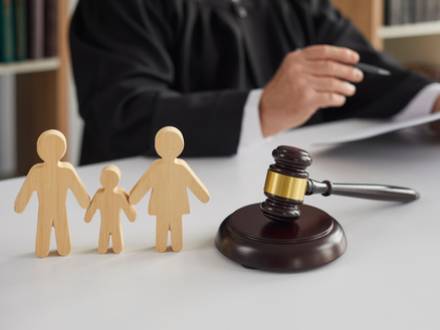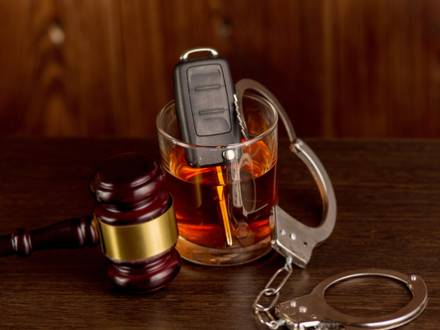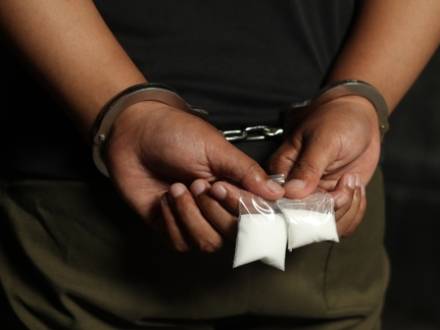Recent Blog Posts
Can I Get My Drug Charge Dismissed in Texas?
 It is sometimes possible to get a drug charge dismissed in Texas. A dismissal usually depends on the strength of the evidence and whether your rights were respected during the investigation. If you are facing a charge, it is normal to feel anxious about what comes next.
It is sometimes possible to get a drug charge dismissed in Texas. A dismissal usually depends on the strength of the evidence and whether your rights were respected during the investigation. If you are facing a charge, it is normal to feel anxious about what comes next.
According to FBI Uniform Crime Reporting data, Texas recorded nearly 100,000 arrests for drug-related violations in a recent reporting year. The good news is that not every arrest leads to a conviction. If you are dealing with a charge in 2026, it is important to understand your options early. Our Dallas, TX criminal defense lawyer helps people review their case carefully and understand whether dismissal may be possible.
What Does a Drug Charge Mean Under Texas Law?
In Texas, drug possession offenses are commonly handled under the Texas Controlled Substances Act. Among the most common offenses is possession, governed by Texas Health and Safety Code § 481.115 to § 481.118. To convict you, prosecutors must prove that you knowingly possessed a controlled substance. This means they must show you were aware of the substance and had control over it.
Can Police Enforce a Custody Order During a Dispute in Texas? | TX Family Lawyer
 As of 2026, police in Texas usually cannot enforce a child custody order during a dispute unless the order clearly allows police involvement or a crime is happening. Most custody disagreements are civil issues, not criminal ones, which limits what officers can do when they respond to a call.
As of 2026, police in Texas usually cannot enforce a child custody order during a dispute unless the order clearly allows police involvement or a crime is happening. Most custody disagreements are civil issues, not criminal ones, which limits what officers can do when they respond to a call.
Custody disputes are common in the court system. According to 2025 research from the Pew Research Center, state and local courts handle about sixty-six million cases each year nationwide, and 5.7 percent of those cases involve family law matters, including custody and visitation disputes.
If you are dealing with a custody conflict, a Tarrant County, TX child custody lawyer can help you understand what enforcement options are actually available.
How Blood Tests Are Challenged in Texas DWI Cases
 As of 2026, Texas prosecutors still rely heavily on blood tests in DWI cases, especially when a breath test is refused or unavailable. These test results can be challenged, especially when problems arise with testing delays, handling, or lab procedures.
As of 2026, Texas prosecutors still rely heavily on blood tests in DWI cases, especially when a breath test is refused or unavailable. These test results can be challenged, especially when problems arise with testing delays, handling, or lab procedures.
In a 2025 report by Stateline, investigators found that forensic crime labs across the country are struggling with growing backlogs. This can delay toxicology and blood alcohol testing and place added strain on laboratory accuracy. When blood samples sit untested for long periods, questions can arise about storage, contamination, and reliability.
If your DWI charge is based on a blood test, a Dallas, TX DWI defense lawyer can help review whether those issues affect your case.
Can I Get Sole Custody of My Kids in Texas?
 Texas courts prioritize stability, safety, and the child’s overall well-being when deciding custody cases. It is possible to get sole custody of your children in Texas. However, it is not the default, and it must be supported by evidence that this type of arrangement would be in the child’s best interest.
Texas courts prioritize stability, safety, and the child’s overall well-being when deciding custody cases. It is possible to get sole custody of your children in Texas. However, it is not the default, and it must be supported by evidence that this type of arrangement would be in the child’s best interest.
Courts begin with the idea that children benefit from having both parents involved, unless there is a strong reason to limit one parent’s rights. Our Tarrant County, TX child custody lawyer can help explain how Texas courts approach sole custody and what factors truly matter.
What Does Sole Custody Mean Under Texas Law?
In Texas, custody is called conservatorship. Sole custody usually refers to one parent being named the sole managing conservator. A sole managing conservator has the exclusive right to make major decisions for the child. These decisions may involve education, medical care, and where the child lives. The other parent may still have visitation rights, unless the court limits or denies them. Texas Family Code § 153.002 makes clear that the best interest of the child is always the court’s primary concern in custody decisions.
How False Claims of Family Violence Are Investigated in Texas
 When you receive notice of a family violence allegation in Texas, law enforcement and prosecutors begin working immediately. They collect facts and evaluate what happened. The police will gather physical evidence, witness statements, digital records, and scene documentation.
When you receive notice of a family violence allegation in Texas, law enforcement and prosecutors begin working immediately. They collect facts and evaluate what happened. The police will gather physical evidence, witness statements, digital records, and scene documentation.
Texas law enforcement agencies must follow set procedures when they respond to family violence cases. If you are facing an allegation that does not match what happened, a Dallas, TX family violence defense attorney can help you understand each step of the investigation.
What Evidence Do Investigators Look For in a Family Violence Case?
Police and prosecutors look at physical evidence, statements from everyone involved, and the overall condition of the scene to understand what happened. They also consider how Texas law defines family violence. For example, Texas Family Code Section 71.004 explains that certain acts involving threats and physical harm can qualify as family violence.
How Do Texas Courts Handle Debt in a Divorce?
 As you may already know, dividing property is a standard part of the divorce process in Texas. That includes dividing any marital debt. In Texas, this can be complicated because the state follows community property laws. With help from an experienced Tarrant County, TX divorce lawyer, you can protect your credit and negotiate a fair settlement.
As you may already know, dividing property is a standard part of the divorce process in Texas. That includes dividing any marital debt. In Texas, this can be complicated because the state follows community property laws. With help from an experienced Tarrant County, TX divorce lawyer, you can protect your credit and negotiate a fair settlement.
What Does "Community Property State" Mean?
Texas is one of a few states that follow the community property system. Under Texas Family Code § 3.002, community property includes all assets and debts acquired during the marriage. This means that both spouses are equally responsible for most financial obligations, even if only one person’s name is on a credit card or loan.
What Happens if You Are Convicted of a Second or Third DWI in Texas?
 In Texas, the law increases penalties each time you are convicted of driving while intoxicated (DWI), and the effects can reach far beyond jail time. If you have been arrested for a second or third DWI, you need to know what is at stake and how a Dallas, TX DWI defense lawyer can help protect your future.
In Texas, the law increases penalties each time you are convicted of driving while intoxicated (DWI), and the effects can reach far beyond jail time. If you have been arrested for a second or third DWI, you need to know what is at stake and how a Dallas, TX DWI defense lawyer can help protect your future.
What Are the Penalties for a Second or Third DWI in Texas?
A second DWI is a Class A misdemeanor under Texas Penal Code § 49.09(a). A conviction could lead to up to one year in the county jail and fines of up to $4,000. A possible driver’s license suspension of up to two years is also possible. In most cases, you must install an ignition interlock device in your vehicle. This device requires you to blow into it to start your car and prevents driving if alcohol is detected.
When Can You Modify Child Support in Texas?
 If your financial situation or your child’s circumstances have changed, you may need to adjust your child support order. In Texas, the courts allow modifications to an existing support order, but only in certain situations. There must be a good legal reason before the court will approve it. Working with an experienced Tarrant County, TX child support lawyer can help you understand if your case qualifies and guide you through the process.
If your financial situation or your child’s circumstances have changed, you may need to adjust your child support order. In Texas, the courts allow modifications to an existing support order, but only in certain situations. There must be a good legal reason before the court will approve it. Working with an experienced Tarrant County, TX child support lawyer can help you understand if your case qualifies and guide you through the process.
When Can You Request a Child Support Modification in Texas?
Under Texas Family Code § 156.401, either parent can ask the court to change a child support order if there has been a "material and substantial change" in circumstances. This means something big has changed in your life, the other parent’s life, or your child’s needs.
Possible Defenses Against Drug Possession Charges in Texas
 Even a small amount of drugs can lead to a drug possession charge in Tarrant County. A conviction may result in heavy fines, jail time, and a stain on your criminal record. However, you have the right to fight the charges. A strong defense depends on the facts of your case, how the police acted, and whether prosecutors can prove each part of the charge. You need an experienced Tarrant County, TX drug crimes defense lawyer to help you strategize and challenge the allegations.
Even a small amount of drugs can lead to a drug possession charge in Tarrant County. A conviction may result in heavy fines, jail time, and a stain on your criminal record. However, you have the right to fight the charges. A strong defense depends on the facts of your case, how the police acted, and whether prosecutors can prove each part of the charge. You need an experienced Tarrant County, TX drug crimes defense lawyer to help you strategize and challenge the allegations.
What Does Texas Law Say About Drug Possession?
According to the Texas Controlled Substances Act, it is illegal to have a controlled substance without a valid prescription. The key is that you have to knowingly possess it. The law defines "possession" as having care, custody, control, or management of the drug. This means you do not have to own the drugs to be charged. Simply having them in your car, home, or pocket could lead to an arrest.
Do I Need Permission From My Ex To Move With Our Child?
 There are many good reasons to move. However, when you share custody of a child in Texas, relocating is not as simple as deciding to go, packing up, and leaving. If a parent moves without the required approval, it could trigger serious legal consequences that affect both custody rights and the child’s stability. Our Dallas, TX child custody lawyer provides the knowledge and advocacy you need to navigate relocation issues and protect your role in your child’s life.
There are many good reasons to move. However, when you share custody of a child in Texas, relocating is not as simple as deciding to go, packing up, and leaving. If a parent moves without the required approval, it could trigger serious legal consequences that affect both custody rights and the child’s stability. Our Dallas, TX child custody lawyer provides the knowledge and advocacy you need to navigate relocation issues and protect your role in your child’s life.
When Do You Need Permission To Relocate in Texas?
In Texas, the law does not specify a fixed distance that requires you to ask permission before moving with your child. Instead, most Texas custody arrangements include limits on where a child can live. These are often called geographic restrictions. For example, the court may say the child must live within a certain county or region. If you want to move outside that area, you usually need your ex’s agreement or the court’s approval.







 469-845-3031
469-845-3031


